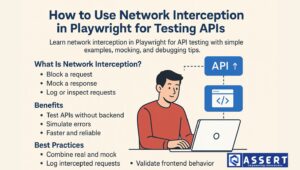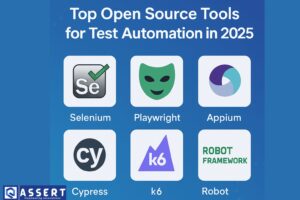Today, testers often face a problem:
-
Web apps need testing in browsers.
-
Mobile apps need testing on Android and iOS.
-
APIs also need to be tested.
Most frameworks support only one area. For example:
-
Playwright is great for web and API tests.
-
Appium is powerful for mobile app tests.
But what if we bring both together? This is where Unified Mobile Testing: Appium + Playwright in one framework comes in.
What is Unified Mobile Testing?
Unified mobile testing means creating one framework that supports:
-
Web apps (Playwright)
-
Mobile apps (Appium)
-
APIs (Playwright or RestAssured)
This way, you don’t need different frameworks for each type of testing. Everything stays in one place.
Why Combine Appium and Playwright?
Here are the main benefits:
- One framework, multiple platforms – Run tests for web, mobile, and APIs from the same project.
- Less maintenance – No need to manage 2–3 different codebases.
- Shared reports – Unified reports (like Extent Reports or Allure) show results for all tests.
- Reusable utilities – Common methods for logging, waits, screenshots, and AI-based self-healing.
- Future-proof – Easy to add new tools later (like Applitools for visual testing).
How It Works
-
DriverFactory
-
A central class that decides whether to start Playwright or Appium driver.
-
Example: If test type = “WEB”, use Playwright. If test type = “MOBILE”, use Appium.
-
-
Common Actions
-
A shared utility class for actions like
click,type,scroll. -
Works for both Playwright and Appium, so test scripts look the same.
-
-
Reports
-
Use Extent Reports or Allure Reports for combined web + mobile results.
-
-
Configuration
-
Use
config.propertiesor JSON/YAML files to control environment, platform, and device.
-
Example Use Case
Scenario: Test a shopping app.
- On Web: Open site in Chrome (Playwright).
- On Mobile: Open app in Android (Appium).
- On API: Call backend API (Playwright API testing).
- All results are shown in one report.
Challenges and Solutions
| Challenge | Solution |
|---|---|
| Different locator strategies | Use a self-healing AI locator engine. |
| Appium slower than Playwright | Run tests in parallel execution. |
| Complex setup | Use Docker or cloud services like BrowserStack or Sauce Labs. |
Conclusion
By combining Appium + Playwright, testers can achieve true unified mobile testing.
-
One framework for web, mobile, and API.
-
Easier maintenance.
-
Better collaboration for QA teams.
This is the future of test automation frameworks.




